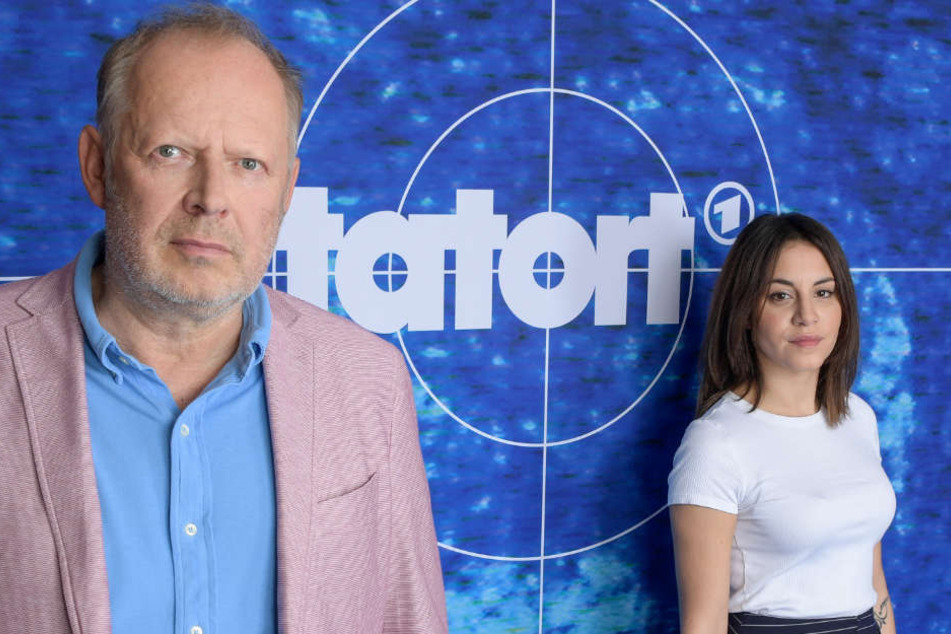 One of the pillars of being German is watching Tatort on Sunday nights. With over 1000 episodes over the last, I think, 40 years, Tatort isn't just a show, it's an institution. "What are you up to tonight?", for example, is a question nobody dared asking in the mid-2000s on a Sunday, when half the population would watch the the various detectives, one more German than the other, solve crimes. Except me. I never did. When Tatort reached peak popularity, I was a teenager in the States. So I knew that everyone at home watched Tatort, but I wasn't home. I never watched much TV so this whole craze passed me by - until a few weeks ago when I watched my first Tatort.
One of the pillars of being German is watching Tatort on Sunday nights. With over 1000 episodes over the last, I think, 40 years, Tatort isn't just a show, it's an institution. "What are you up to tonight?", for example, is a question nobody dared asking in the mid-2000s on a Sunday, when half the population would watch the the various detectives, one more German than the other, solve crimes. Except me. I never did. When Tatort reached peak popularity, I was a teenager in the States. So I knew that everyone at home watched Tatort, but I wasn't home. I never watched much TV so this whole craze passed me by - until a few weeks ago when I watched my first Tatort.I had been home in Germany, hanging out with my friend on Sunday night. Her mother was over with her knitting tools and Tatort was about to start. She expressed she was only staying, if we watched it with her. I thought I could stay for a while, then leave. I didn't think I'd enjoy 90 minutes of a TV show; I never watch stuff that long. But I didn't leave. I needed to know how Inspector Borowski made the murderer confess. It had happened: I loved Tatort like every good German would. And while I tried to explain what I liked about it so much, I actually realized that it might be exactly that: Tatort is a German gem, a cultural phenomenon and in its presentation as German as it gets. Finally a show I can identify with.
In the last few weeks, while starting my last job, I have come to see more than ever before how much I like Germans. The German leg of my new job is by far the best. When I watch videos on YouTube, which is my job, the German ones are way better, smarter and funnier to me than the others. My German colleagues are definitely the funniest. And speaking in German, about Germany, about history, about everything we have in common just because we are all from there, has been so nice for me after all this time "away from home". We can laugh about wanting a process, we find Lothar Matthäus funny and we remember Alex K. - Superstar. I am the last person that seeks any sort of exclusivity, but I find it hard to believe that for onlookers who are not German, we would make any sense.
I can't explain why I have to genuinely laugh out loud when I watch German late night shows, but when I watch the likes of Jonathan Ross, Alan Carr or whatever their names are, the best I can do is crack a smile. Obviously, internationally Germans are not known to be very funny, but I find them way funnier than any of the British. And maybe it is the same as loving Tatort: just understanding. I understand why the German detectives act the way they do. They barley smile which isn't crazy because, of course, they're German, they eat their Butterbrot in the morning and drink their Feierabendbier after work. They crack jokes about all kinds of people, being mean is funny. They are like me.
On a recent trip with my German team in the Bavarian Alps, the playlist was entirely German. I usually didn't enjoy a playlist like that because I would worry about those in the room not "German enough" to be able to appreciate Schlager. But that night, everyone knew the lyrics to Atemlos, those who had grown up in Germany could also sing Pur Hitmix from front to back. No German ever WANTED to learn this song by heart, but it just happens. And in that, I made a discovery that took me a few years to make: whether I want it or not, where you're from will never change. I can never not be German even if I burn my passport. I will never run late, I will never stop loving a clearly defined plan, a measurable process, a color code in documents and Tatort. The lyrics to Verdammt ich lieb' Dich can never be unlearned. Even after a decade away from the Fatherland.
